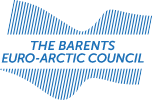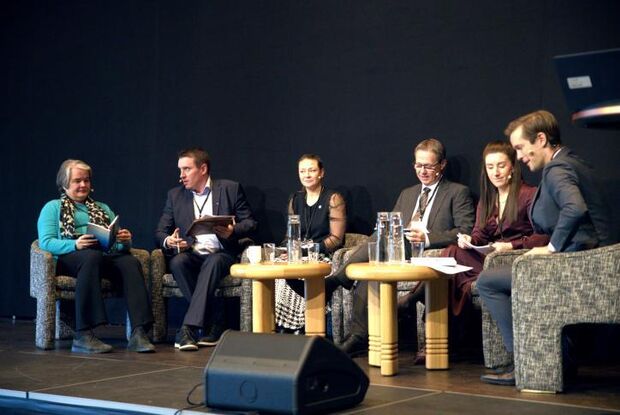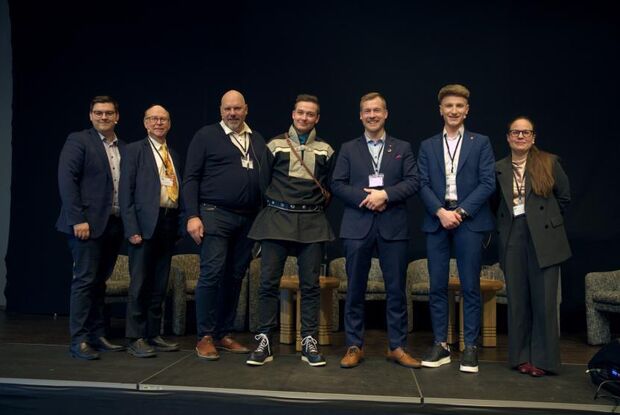This year, around 350 participants from various backgrounds gathered in the Finnish Lapland to discuss matters of the Arctic, Indigenous Peoples and Arctic youth. Participants represented different sectors of the society, including governments, industry, research, international organizations, and Indigenous and local communities. The event was held at Levi, a skiing resort in northern Finland surrounded by nature.
Arctic, Indigenous, and Youth Matters Are For Everyone
The EU Arctic Forum, Indigenous Peoples' Dialogue and Arctic Youth Dialogue was held 26-27 June in Kittilä, Finland. The event is EU's flagship event on Arctic matters, organized alternative years in Brussels and an EU member state.
Published 08.07.2025
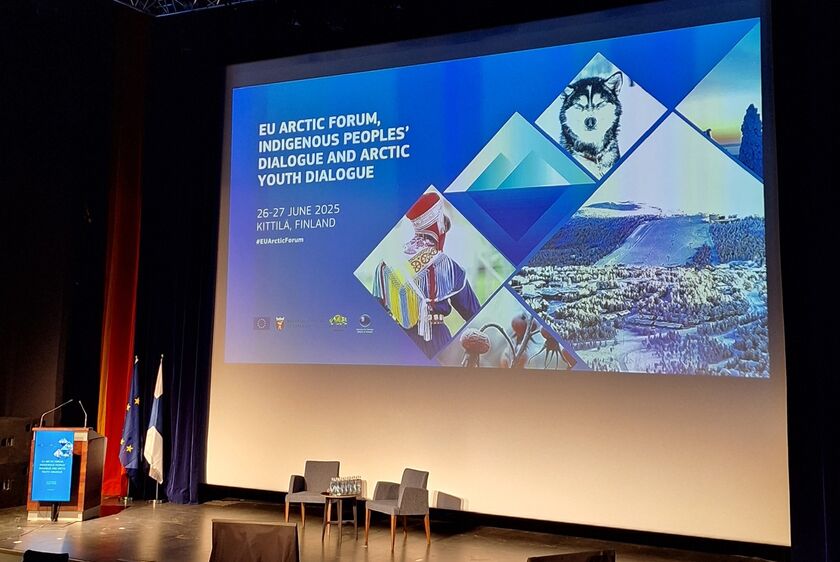
The stage was set for discussions on Arctic, Indigenous and Youth issues.
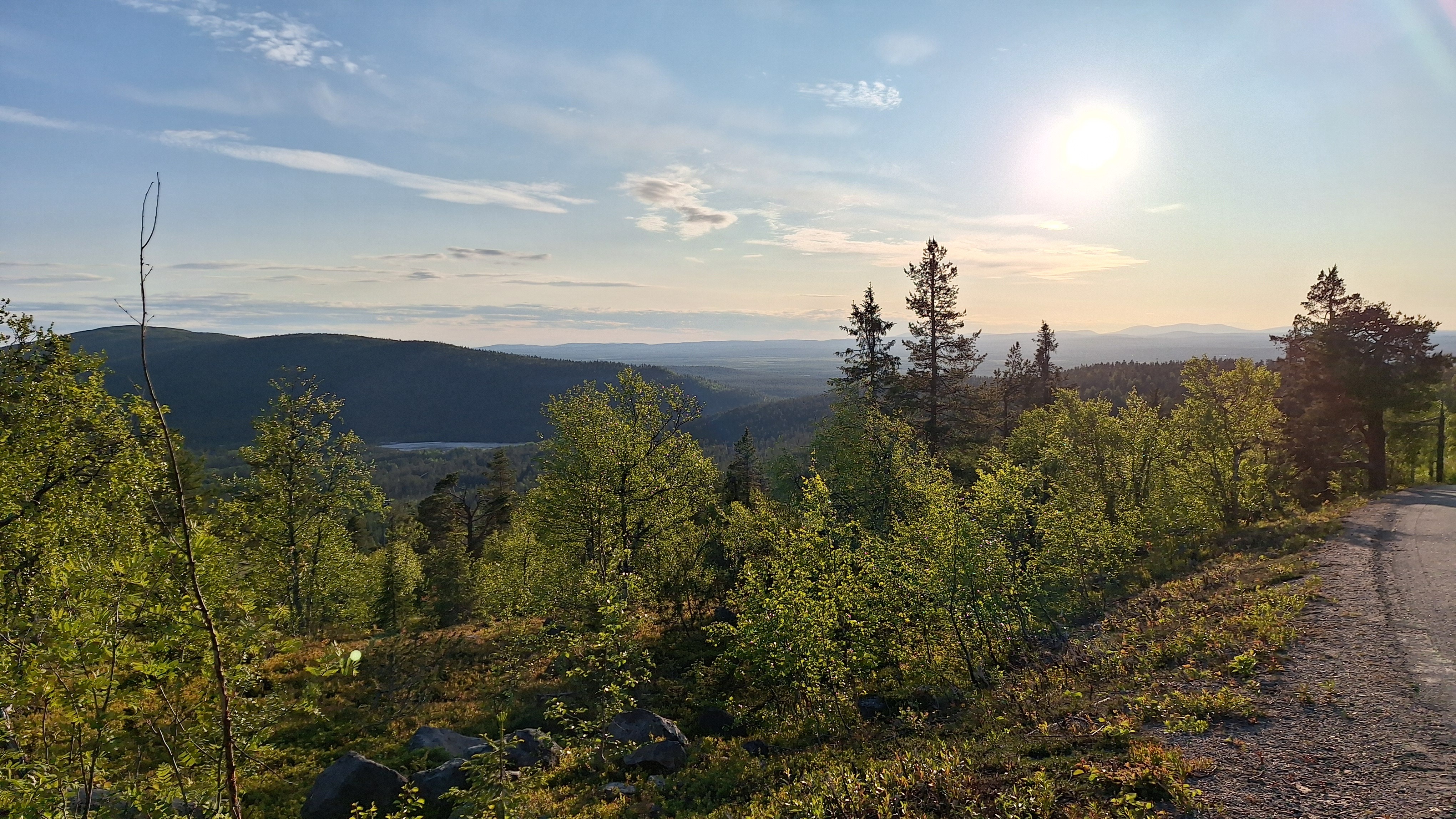
One of the recurring themes appearing in the various keynote speeches and panel discussions in all three was climate change. The audience was reminded of the fact that the Arctic is especially susceptible to climate change, as the speed of climate change in the Arctic is three times as fast as elsewhere. Rising temperatures lead to milder winters and hotter summers, which in turn melt polar ice and thaw permafrost. These warmer temperatures threaten biodiversity of the Arctic. Changes in the ecosystem affect both humans and animals, with especially serious consequences for Indigenous Peoples around the Arctic. Their traditional livelihoods, such as fishing and hunting, are fundamentally connected to nature, so any changes in the environment directly affect them.
In addition to climate change, livelihoods of Indigenous Peoples are often in jeopardy due to state interests, especially when it comes to the pursuit of economic growth. Many Indigenous communities are simultaneously trying to navigate both climate change and unfavorable development projects. Indigenous communities are doing their best in the difficult situation:
"While we live in challenging times, we need to address those challenges."
Peter Borg, Minister for Fishing, Hunting, Agriculture and Self-Sufficiency of Greenland
Various speakers at the event delivered powerful and at times, moving, speeches, demanding attention to grievances still affecting Indigenous Peoples in the Arctic. Many Sámi speakers voiced their concerns over mining and infrastructure projects under planning for their traditional lands without receiving a free, prior and informed consent from the affected communities. Speakers from rural parts of Canada and the United States drew attention to poor access to medical care and the discrepancy of developing transportation to rural areas for easier tourist access rather than for local needs.
Throughout the conference, members of various Indigenous peoples across the Arctic sent a strong message that they not only want to be heard, they want their rights to be respected as well. Words may be beautiful, but they must be accompanied with action.
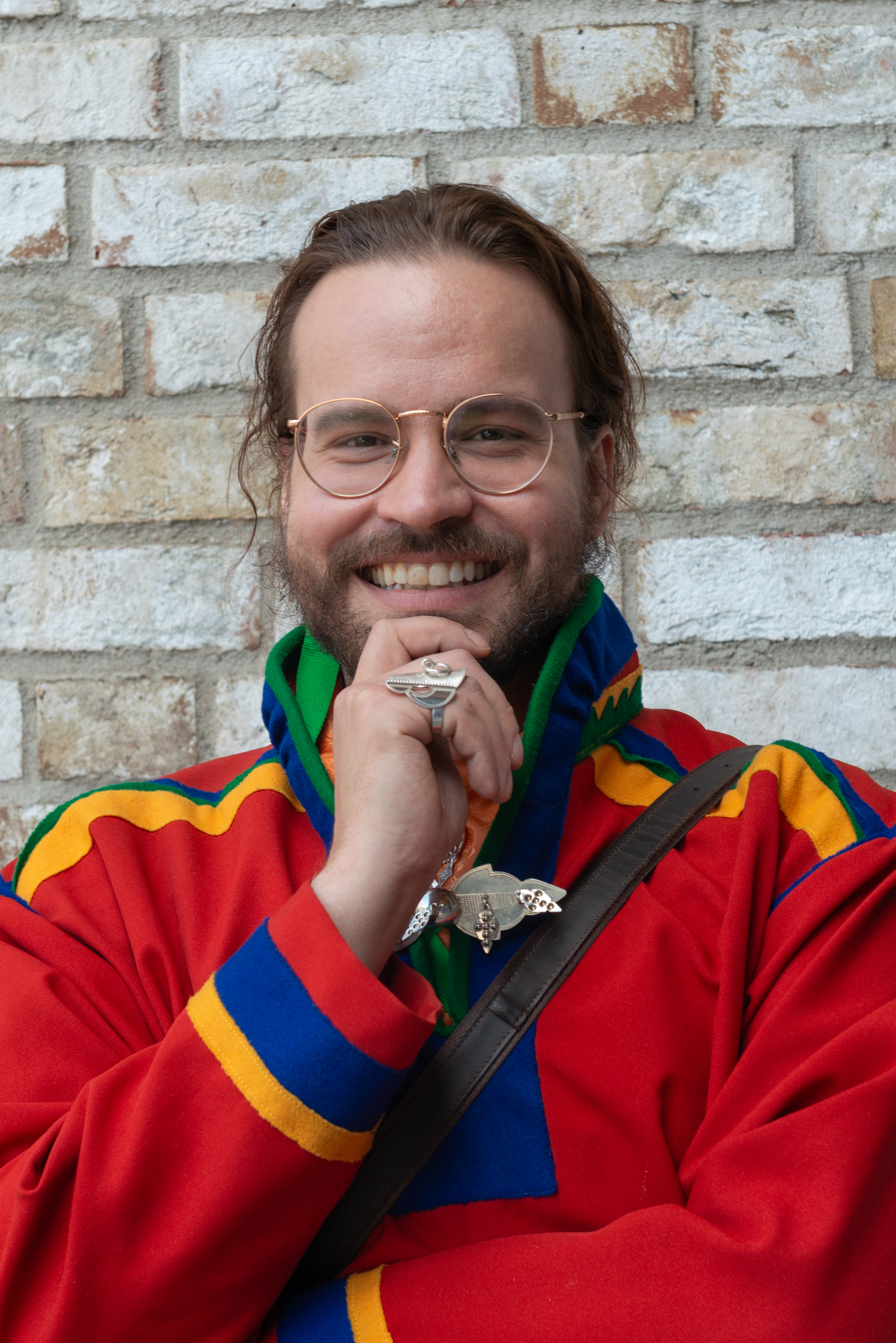
Janne Hirvasvuopio, Chair of the Working Group of Indigenous Peoples
In addition to providing a space for dialogue, events such as this are an important opportunity for building both vertical and horizontal relations, which can then be used to take action. The Chair of the Working Group on Indigenous Peoples, Janne Hirvasvuopio, highlighted the importance of such events for both EU-Sámi relations and among the Sámi people themselves:
"Sámi people find EU-level advocacy ever important in the changing global atmosphere, especially in terms of geopolitics. Moreover, international fora are important for cross-border cooperation between different Sámi institutions and parliaments."
Janne Hirvasvuopio, Chair of the Working Group on Indigenous Peoples
Similar to Indigenous speakers and panelists, participants of the Arctic Youth Dialogue demanded that their thoughts and opinions be heard and listened to. A key takeaway from the speeches and panels was the wish of young people from diverse backgrounds to be more involved in policy making from the beginning; it is not enough to ask for their opinions at the finish line of a project or policy. Moreover, young people should be invested in and they need to be given better job prospects. The youth have so much potential, they simply need the support of the older generations to prosper. A member of the Arctic Youth Dialogue 2025 cohort put it well:
"For the youth to believe in themselves, we also need you to believe in us."
The future of the Arctic and all its people rely on cooperation. As Sirið Stenberg, the Deputy Prime Minister and Minister of Foreign Affairs, Industry and Trade from Faroe Islands said, "no one can stand alone." Everyone is needed in the fight for our future.
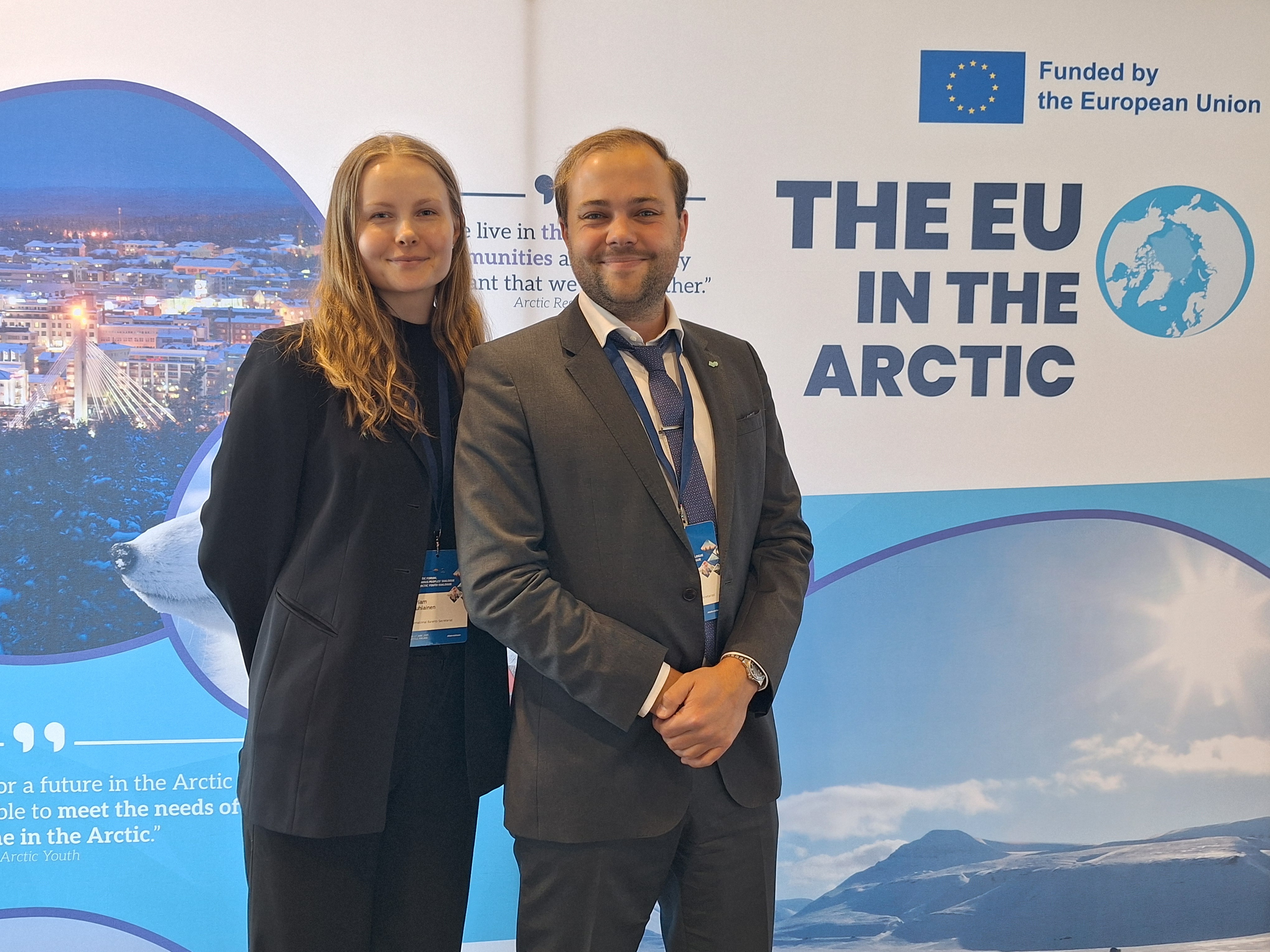
Miriam Jauhiainen, intern at The International Barents Secretariat.
Jens Kristian Øvstebø, adviser at The International Barents Secretariat.
